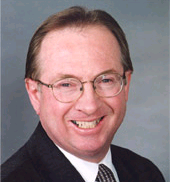ABC Managing Director Russell Balding now knows how much the ABC has to spend after last week’s federal budget.
The national broadcaster’s base funding has been continued and the corporation has also received further money from the National Interest Initiative Program, which will guarantee the continuance of the newly opened ABC Radio stations around the country.
The total budget appropriation for the ABC in the 2004-05 Budget year is $756 million, with an additional $18 million from the National Initiative Program.
Russell Balding speaks exclusively to radioinfo this week about funding, new stations and the ABA.
radioinfo: The National Initiative Program has had some ‘for and against’ reactions. People who are ‘for’ it see it as a good additional source of ABC funding, but those ‘against’ it see it as ‘tied funding’ which could compromise the ability of the ABC to be responsible for its own management and staffing decisions. What are your thoughts on both opinions?
Balding: This is a critical source of additional funding which has not only allowed the ABC to open studios in Ballarat, but in Wagin in WA, Katherine in the NT and Erina in NSW.
We took on 57 new full-time regional radio people. We produced over 8,400 extra hours of local radio content. We produced over 110 extra hours of television programming. So the renewal of funding is great news about all the initiatives funded by NII.
This funding is not ‘tied’ as every proposal within the National Interest Initiatives came, uncompromised, from the ABC Board – not from Government.
radioinfo: Has the fact that the new stations have gone up in marginal electorates worried you from a management and editorial point of view?
Balding: No.
It has been a longstanding goal for Local Radio to have a presence in the regions now covered by Ballarat, Katherine and Wagin stations.
Demographic data was analysed when choosing these locations, as were identifiable gaps in the Local Radio service, the various communities of interest which needed local coverage.
ABC Bendigo could not provide adequate coverage of audience interests
specific to the growing Ballarat region. Wagin and the region it
broadcasts to had similar local needs.
Of the three population centres in the NT – Alice Springs, Darwin and Katherine – only Darwin and Alice had local services. And now Katherine does as well.
Erina was proposed when two opportunities arose at the same time: a new
transmission service for the region was available, as were premises within the proposed new ABC Shop. Again, demographic data was analysed before finalising the location. Again, the region’s particular interests could not adequately be covered by local radio from either Newcastle or Sydney.
radioinfo: Did you know you would be getting that money before budget night?
Balding: I remained confident that every supporting argument was a powerful one, and that the case had been very well made by the programs and services themselves, and the public appreciation of them.
As well, once the new Minister for Communications had been appointed, I saw it as an opportunity to recast the relationship between the Government and the ABC, to try and get that relationship to better reflect the far better relationship between the ABC and the public.
radioinfo: Would you really have closed those new stations if the funding had not come through?
Balding: This ultimately would have been a decision of the ABC Board but there would have been few alternatives.
radioinfo: How much of the National Initiative money is going to radio and how much is going to tv production?
Balding: The majority is going to Radio.
radioinfo: How will the ABC’s Radio Division fare in the scramble for budget dollars (not including the National Initiative money)? Will Radio Division get more or less money than last year in real terms?
Balding: While the Board is yet consider this year’s budget strategy, there are certainly no reductions planned for Radio.
radioinfo: Do you consider ABC Radio cost effective?
Balding: Yes – absolutely.
By every publicly available measure – the
evidence before the Productivity Commission, the Macquarie Bank survey, the
International Public Broadcasting Benchmarking group – it’s clear that
everything the ABC achieves, it achieves with sparse means.
The ABC has
been a very sound public investment in the past, and – thanks to some
massive reforms – is even better value today.
radioinfo: Who will replace Max Uechtritz?
Balding: The selection process is underway.
radioinfo: Has Max’s departure taken some of the heat off the ABA enquiry into Senator Alston’s complaints?
Balding: No comment.
radioinfo: Do you have an opinion on the role of ABA Chairman Professor Flint in the enquiry in the light of recent information about him?
Balding: No comment.
radioinfo: Should the newly created entity which merges the ABA and ACA (ACMA) have any role in complaints handling in relation to the ABC? Why?
Balding: ACMA’s role in relation to the ABC is likely to be the same as the ABA’s current role in complaints review.
However, we would not expect ACMA’s powers to differ from or exceed those currently held by the ABA.
radioinfo: Do you have any other thoughts about ABC Radio?
Balding: It is not just a great service, but a greatly valued and appreciated
service.
Today ABC Radio has more listeners from every walk of life, of
every age and from every part of Australia than ever before – all enjoying our programs and services.

